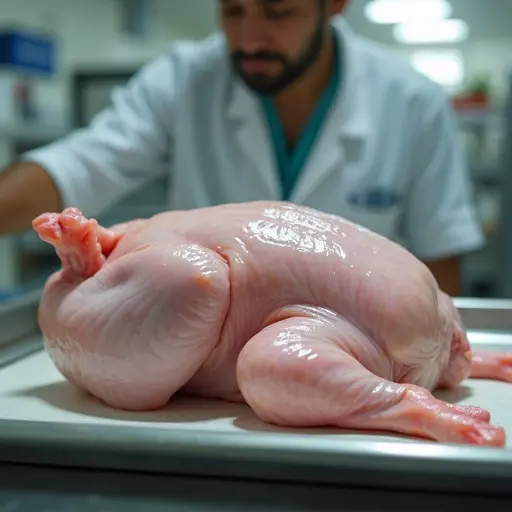
A New Era in Meat Production
In a landmark decision, the USDA and FDA have granted full approval for the commercial sale of lab-grown chicken in the United States. This groundbreaking move marks the first time cultivated meat products will be available to American consumers, with California-based Upside Foods and Good Meat leading the charge.
How It's Made
The production process begins with a small biopsy from a live chicken. Cells are then placed in bioreactors where they're fed nutrients like amino acids and grow into muscle tissue over approximately three weeks. The resulting product is molecularly identical to conventional chicken but produced without slaughter.
Regulatory Milestone
The approval follows a rigorous four-year review process under a joint FDA-USDA framework established in 2019. FDA oversees cell collection and growth phases, while USDA manages harvesting and labeling. Products will carry "cell-cultivated chicken" labels to ensure transparency.
Restaurant Rollout First
Initial availability will be limited to select restaurants, including Bar Crenn in San Francisco and a José Andrés establishment in Washington DC. Upside Foods plans to produce 50,000 pounds annually initially, scaling to 400,000 pounds as production capacity increases. Priced competitively with conventional chicken, a single cultivated chicken breast currently costs about $50 to produce but prices are expected to drop significantly with scaling.
Environmental and Ethical Benefits
Proponents highlight significant advantages: 1) 45-55% lower greenhouse emissions than conventional poultry farming 2) 90% reduction in land use 3) No antibiotics or growth hormones 4) Animal welfare improvements as only initial biopsies are required. However, critics note the high energy demands of bioreactors, urging renewable energy integration.
Consumer Acceptance Challenge
Studies show 35% of meat-eaters and 55% of vegetarians express reluctance to try cultivated meat. Industry leaders are focusing on taste experience to overcome the "yuck factor." Singapore remains the only other country with approved sales since 2020.
What's Next
FDA recently completed pre-market consultations for cultivated pork (March 2025), signaling expansion beyond poultry. While retail availability may take several years, this approval fundamentally reshapes America's $1.7 trillion meat industry.

 Nederlands
Nederlands
 English
English
 French
French
 Deutsch
Deutsch
 Espaniol
Espaniol
 Portugese
Portugese



